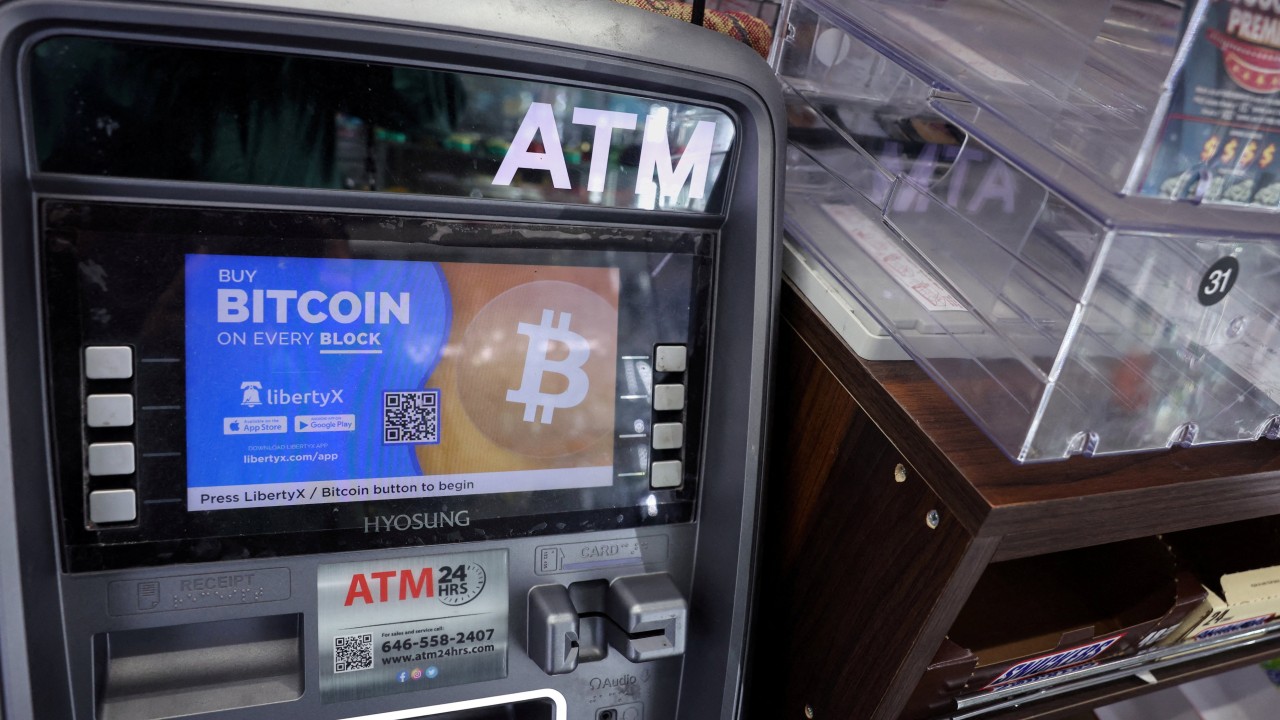Nearly half these gains have occurred since the beginning of this year. On January 10, the United States Securities and Exchange Commission (SEC) provided a major fillip to cryptoland by approving applications by a dozen or so firms, including Wall Street giants such as BlackRock and Fidelity, to launch the first
batch of exchange-traded funds (ETFs) that track the spot price of bitcoin.
This is a milestone in the development of the cryptocurrency asset class, not least because of how long the SEC rejected such applications. More importantly, the launch of the spot bitcoin ETFs makes it easier for a broader range of investors to buy the token without directly holding bitcoin itself.
The facts speak for themselves. The bitcoin ETFs have attracted net inflows of almost US$10 billion since
they began trading two months ago. BlackRock’s ETF alone received US$10 billion in just seven weeks. This is the shortest time ever for an ETF to accumulate such a sum, and a feat the first gold ETF took over two years to accomplish after it began trading in 2004, according to Bloomberg data.
In a report published on March 7, Deutsche Bank said “the crypto world is gradually moving towards greater institutionalisation as traditional financial players enter the market”. The SEC is now considering whether to accept applications to launch ETFs tracking the spot price of
Ethereum’s ether, the second-largest virtual currency.
As a financial asset, bitcoin appears to be proving the naysayers wrong. It is establishing itself as a mainstream asset, underpinned by its remarkable staying power and the new-found legitimacy conferred by the launch of the ETFs. On March 11, Britain’s financial watchdog the Financial Conduct Authority – one of the world’s most cryptocurrency-wary regulators – said it would not object to the creation of exchange-traded notes backed by cryptocurrencies such as
bitcoin and ether.
Yet while bitcoin’s appeal as an asset has been underestimated, its problems persist. The most glaring one is that 16 years after the bitcoin blockchain technology was invented, the token’s use as a
tool for payments has made scant headway, mainly because of high costs and the slow speed of transactions.
Even in El Salvador – the first country to
make bitcoin legal tender and where the prospects for cryptocurrency adoption appeared more favourable given Salvadoreans’ limited access to traditional financial services – bitcoin has not been widely used as a medium of exchange. This is partly because of privacy and transparency concerns, the findings of a paper published in the journal
Science last year showed.
Moreover, views about bitcoin have become more polarised. To its supporters, the leading cryptocurrency – which accounts for more than half of the market capitalisation of cryptocurrency assets – is transitioning to a mainstream asset, having crossed the Rubicon of institutional acceptance with the launch of the ETFs.
Some of its proponents see it as a digital version of gold, whose value is underpinned by limited supply. The upcoming bitcoin “halving”, or a reduction in the number of coins awarded to miners for validating transactions which happens once every four years, should help drive up the token’s price further. Deutsche Bank also notes that tougher regulation will “drive increased corporate adoption and, ultimately, help address volatility”.
To its critics, however, bitcoin is nothing more than a speculative asset and, along with other digital coins, a vehicle for
fraudsters,
terrorists and
drug dealers. Vanguard, the world’s second-largest money manager, refused to offer the new bitcoin ETFs on its trading platform because of its long-held aversion to speculative investments.
Even the SEC’s approval of the bitcoin ETFs was grudging, with the regulator’s hand forced by pressure from the courts. The US watchdog’s chair
Gary Gensler made clear that the SEC’s decision was not an endorsement of bitcoin, which was “a volatile asset that is also used for illicit activity”.
Diehard cryptocurrency fans also have reasons to be concerned. Bitcoin’s original promise of providing a
decentralised form of money that sidesteps government and mainstream finance rings hollow. Tougher regulation and the entry of large Wall Street firms into the market are a betrayal for many cryptocurrency evangelists.
However, now is the time for pragmatism. Traditional finance has brought bitcoin back from the dead. While the fierce rally looks vulnerable, partly because of a renewed surge in leverage among traders, bitcoin is entering a more mature phase. Few would have predicted such rapid progress a little more than a year ago.
Nicholas Spiro is a partner at Lauressa Advisory


